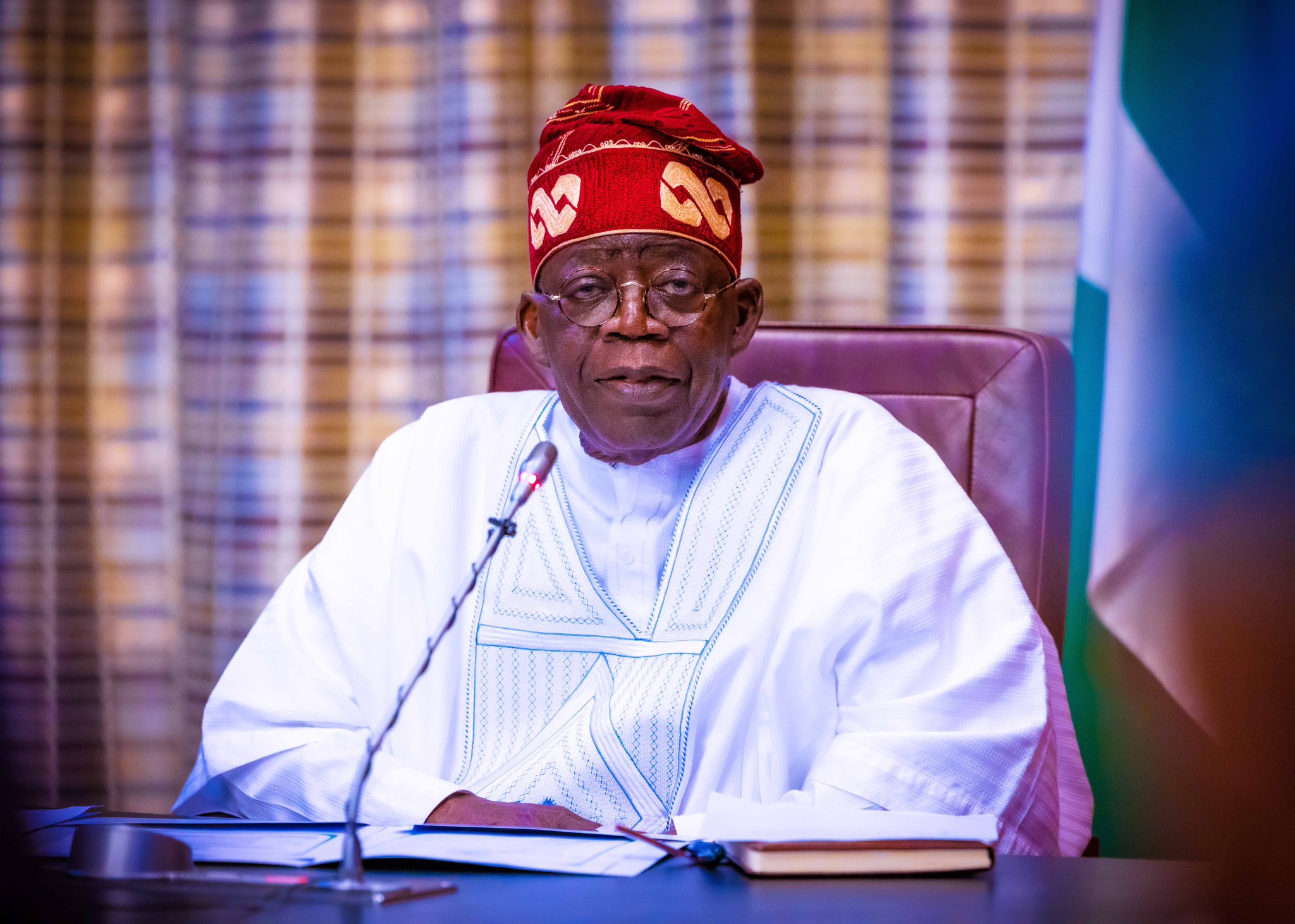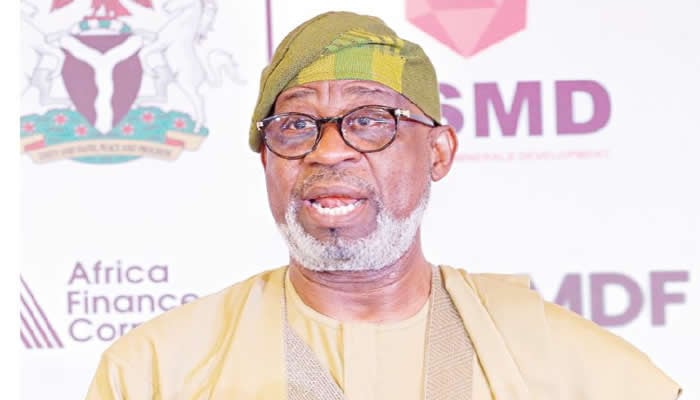President Bola Tinubu, on Monday, praised the Economic and Financial Crimes Commission’s strides in anti-graft fight, saying the agency secured 700 convictions and recovered N500bn fraud proceeds in two years.
Speaking through Vice President Kashim Shettima at the opening of the 7th EFCC-NJI Capacity Building Workshop for Justices and Judges on Monday in Abuja, Tinubu said his administration remained committed to empowering anti-graft agencies to deliver tangible results, citing the EFCC’s performance as a clear example.
According to a statement by the EFCC spokesman, Dele Oyewale, Tinubu said the Commission had recorded over 7,000 convictions in the first two years of his administration and recovered assets worth more than N500bn.
“The EFCC, for example, has recorded over 7,000 convictions in the first two years of the present administration and recovered assets in excess of N500bn.
“Recovered proceeds of crime by the agency have been ploughed back into the economy to fund critical social investment programmes, including the Students Loan and Consumer Credit schemes,” he was quoted as saying.
The President said the government’s anti-corruption drive would only succeed if all arms of government worked in synergy, stressing that judges play an indispensable role in ensuring accountability and public trust in the justice system.
“A Nigeria free of corruption is possible if we all commit to doing what is right in our respective spheres of influence,” Tinubu said. “A robust judicial system is central to the success of anti-corruption efforts, and I count on our judges.”
Tinubu emphasised that the executive, legislature, and judiciary must lead by example, warning that the fight against corruption would lose credibility if public officials failed to uphold integrity.
“We cannot claim to have excelled in our pursuit of a transparent system if we do not live by such examples,” he said. “Courts and judges are strong pillars of the anti-corruption process. Your vantage position on the bench does not insulate you from the consequences of corruption.”
The President noted that corruption undermines national development and fuels insecurity, urging all Nigerians to unite in confronting it.
“There are no special roads, hospitals, or communities for judges. We all face the same risks that arise from decades of willful theft and wastage of our nation’s resources,” he said. “It is in the interest of all Nigerians to join hands in fighting and winning this war.”
Earlier, the EFCC Chairman, Ola Olukoyede, raised alarm over the persistent delays and procedural setbacks plaguing high-profile corruption cases in Nigerian courts, warning that they have cast a shadow over the agency’s achievements.
Olukoyede said that although the EFCC had made significant progress in tackling corruption, public confidence in the judicial process continued to wane due to the slow pace of politically sensitive trials.
“The milestones we have recorded in the past two years are almost overshadowed by public concern over the progress of high-profile cases in court. The seeming convoluted trajectory of many cases involving politically exposed persons evokes gasps of exasperation, incredulity, and sometimes disdain by the people.
“Without mentioning specific cases and courts, there are cases filed by the commission 15 or 20 years ago that appear in limbo, moving in circles,” he said.
Olukoyede described a recurring pattern in which defendants in corruption cases—especially politically exposed persons—exploit legal loopholes to delay proceedings.
“We appear to have grown accustomed to a predictable pattern in high-profile prosecutions: When investigations are concluded, getting politically exposed persons to appear in court to answer to charges is a Herculean task. When that hurdle is overcome and the charge is read, other antics unfurl.
“It is either the charges are not properly served, or the defendant who hitherto was fit as a fiddle suddenly comes down with some of the most chronic ailments under the sun. A medical report is brandished and technical adjournment procured,” he said.
The EFCC boss warned that the “weaponisation of procedure” and the prioritisation of technicalities over justice have serious consequences for the integrity of the judiciary.
He noted that prolonged trials often result in witness fatigue, faded memories, and, in some cases, the death or unavailability of key witnesses or prosecutors.
“All of these amount to weaponisation of procedures. Prioritisation of procedural technicalities at the expense of justice undermines public confidence in the fight against corruption and financial crimes.
“This calls for greater circumspection by Your Lordships in making pronouncements and decisions with dramatic implications for the fight against corruption.
“When cases drag in court, many things happen — witness fatigue sets in, memories fade, and those who had testified may struggle to recall their earlier testimonies. In extreme circumstances, the witness or the prosecutor may have died or moved on and is no longer available to testify.
“The longer cases last in court, the more the chance that they slip off popular consciousness, and the image of the court as the temple of justice is eroded. The only victor in the circumstance is corruption.
“My Lords, while the Nigerian judiciary is blessed with competent and courageous judges and justices, the actions and decisions by a few are sources of worry to agencies such as the EFCC,” he said.
Olukoyede also expressed concern over the conduct of some state high court judges, accusing them of issuing orders beyond their jurisdiction to obstruct the Commission’s lawful investigations into money laundering and financial crimes.
“The commission is disturbed by the trend in which some judges of state high courts issue orders to apprehend the powers of the commission to investigate money laundering cases, even though it is clearly established that those matters are outside their purview.
“More worrisome is the fact that most of those decisions are made ex parte. Even where the commission appeals, there are no restraints in making contempt decisions against it,” he lamented.
He decried situations where courts of coordinate jurisdiction deliver contradictory judgments in similar high-profile cases, further complicating the Commission’s work.
“In addition, contradictory decisions by courts of coordinate jurisdiction in high-profile corruption cases encumber the work of the Commission. There is also the case where senior lawyers are allowed to stall the arraignment of corruption suspects through frivolous applications.
“These antics leave society with the suspicion that the courts and the prosecution are not keen about justice,” Olukoyede said.
He also faulted some senior lawyers for filing frivolous applications aimed at delaying the arraignment of suspects, thereby fuelling public suspicion that both the judiciary and prosecutors are complicit in frustrating justice.
The EFCC chairman called on judges and justices to exercise greater circumspection in their rulings, especially in cases with significant implications for the country’s anti-corruption campaign.
punch.ng
FOLLOW US ON:






































